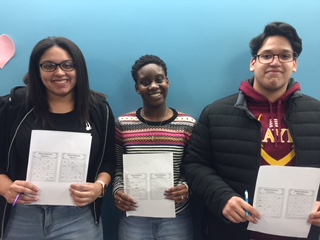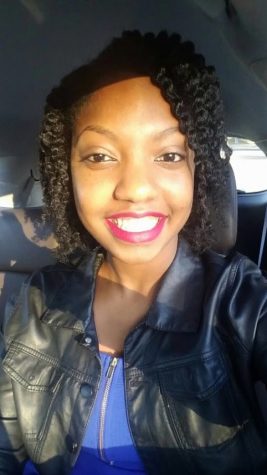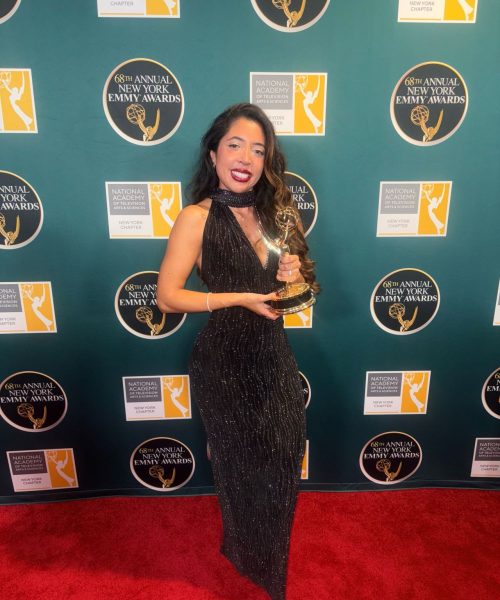What is a ‘Healthy Relationship’ Anyway?

“A healthy relationship consists of two individuals who value each other, work as team, and make each other happy,” said Arlie Bonilla, who is a freshman majoring in Public Accounting.
Mercy College’s Student Counseling Center and Student Activities recently hosted a Healthy Relationship event for the students of the college. The main organizers of the event, Karen Reed, a counselor, and Hannah Berling, Student Life Specialist, along with the help of the Student Life workers brought together students in a comfortable setting in order to talk about what defines a healthy or unhealthy relationship. The college’s Bronx campus held a workshop filled with games and discussion amongst the students and counselors.
“I feel that to truly educate the students at Mercy College, you have to focus on helping them develop the tools to ensure their emotional well being. Our students struggle with trust, communication, and listening to their intuition because many of them have experienced struggles with friendships and family conflict in the past. As the students share their experiences with each other, they learn that they are not alone,” explained Reed.
An unhealthy relationship is often one that causes one person to feel nervous or scared of their partner. Behaviors like constant mood swings, false accusations, a bad temper, physical or mentally manipulation, and possessive or controlling actions are just some of the signs that one is dealing with an abusive partner, according to Break the Cycle.
Forty-three percent of college women report experiencing violent and abusive dating behaviors. Fifty-seven percent of college students say it is difficult to identify, and 58 percent say they don’t know how to help someone who’s experiencing it, according to Love is Respect.
Women aren’t the only ones that are in unhealthy relationships in which they fear their partner. Men also experience this too, yet it is more commonly reported by women.
“Not a lot of people talk about their feelings, especially men. Although men portray a tough exterior, on the inside we are fragile just like everyone else,” said Anthony Rivera, a senior sociology major at Mercy.
“It’s important for students to talk to someone. I want to be someone they can talk to,” said Arielle Kempler. Kemplet is a licensed social worker and spokesperson for the DOVE program.
DOVE, which stands for Domestic & Other Violence Emergencies, is a New York State program in the New York Presbyterian Hospital/Columbia University Medical Center. It is a 24/7 program that provides free help and therapy for individuals who have been through abuse. Any victim that comes to the hospital showing signs of assault will be assigned a therapist or advocate, according to DOVE.
The program provides both short-term and long-term sessions for people that have been victims of domestic violence, physical and sexual abuse, or elder abuse. They provide help for people that are currently experiencing, or are survivors of such experiences. They can be contacted at (212) 305-9060.
The New York State law “Enough is Enough” gives college students that have been sexually assaulted or raped the right to an investigation and proper judicial procedure. The law also requires all colleges to use specific procedures, guidelines, and policy when dealing with victims of sexual abuse. They must undergo have trainings, workshops, and staff involvement, according to New York State.
“It affects everyone that goes to New York colleges,” said Kempler.
Amongst the discussions at the event, there were many questions that were asked. One of them was “why do people stay in an unhappy relationship?” The response generally varied between people being scared of loneliness, having invested a lot of time, financial reasons, or fear of further abuse.
There are many reasons why people stay in an unhealthy relationship. Some may not even know that they are in an unhealthy relationship.
“People gain strength from building a healthy support network that can provide a caring ear and good advice when they need it,” said Reed. “Loneliness and isolation is detrimental to wellness in the physical and emotional sense,” explained Reeed. “A counselor provides a non-judgemental space to support a student come up with their own conclusions about what they need.”
Being in an unhealthy relationship can cause long terms effects such as losing one’s self-worth, damage to ego, depression, serious personality disorders, hard to engage in a new relationship. It is hard to trust and accept love because they feel they are not worthy of love or the person will give them the same treatment like their ex. The longer someones stays in an unhealthy relationship, the more damaging and harder it is to recover, according to the Healthy Place.
The event at the Bronx was filled with students giving their thoughts and bonding each other. It had alot of communication and laughter.
“I definitely feel the event was successful. It had a lot of participation. The students took from it and were open with talking,” said Ezio Flores, Student Life Worker.
“I came to the event because I am in a relationship and wanted to see what they would teach me,” said LaRobin Roby, a freshman studying psychology.
“Coming to the event was a way for me to express myself about love,” said Jeffrey Bethea, a sophomore studying biology.
Any one that goes through an unhealthy relationship, sexual or physical abuse,and emotional abuse, may be traumatized. It may be something they constantly think about and are not sure how to completely deal with it. It may be hard to open up or feel comfortable to talk others about.
There are many trained individuals and programs out there willing to help if you need advice, someone to talk to, help with recovery from past experience. They will keep the sessions confidential. Speaking to someone can help with the recovery process.

Tanisha Esprit, also known as Tan Tan or T, is majoring in journalism at Mercy College. She is from the breathtaking island of St.Thomas, USVI. She enjoys...







